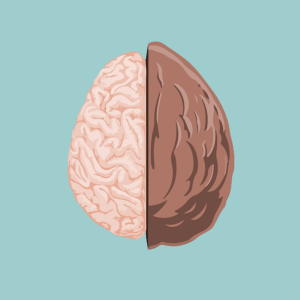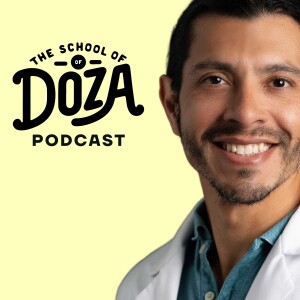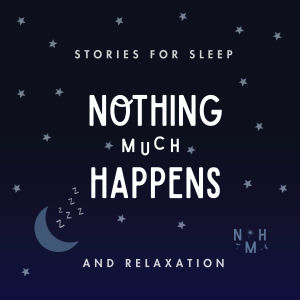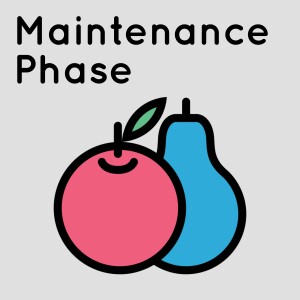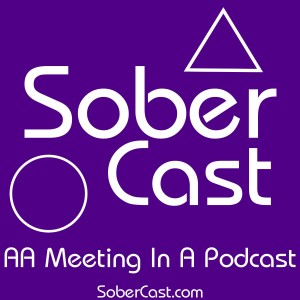

Applied Behavior Analysis and Autism Spectrum Disorder
https://anchor.fm/s/6f259468/podcast/rssEpisode List

Эпизод 3: стереотипия и эффективное вмешательство
Добрый день, дорогие слушатели! Подоспел третий эпизод на тему стереотипного поведения и эффективного вмешательства. Наша сегодняшняя гостья – сертифицированный поведенческий аналитик с докторской степенью и старший консультант в организации FTF behavioral consulting Келси Руппел. У Келси есть несколько сфер интересов: практический функциональный анализ и терапия, основанная на навыках, вмешательства при тяжёлых формах нежелательного поведения, программа Баланс, предполагающая предотвращение нежелательного поведения у детей с РАС. Мы обсудили множество важных вопросов, например, какая разница между моторной и вокальной стереотипией, возможная функция стереотипного поведения, контроль со стороны ребёнка, эффективные стратегии вмешательства и обсуждение разных случаев из практики. Как мне кажется, эта тема одна их самых сложных и обсуждаемых в практике специалистов. Келси даёт нам множество ответов на наши вопросы. Приятного прослушивания!

Эпизод 2: навыки самообслуживания у детей с РАС
Добрый день, дорогие слушатели! Я рада сообщить, что сегодня вышел новый выпуск подкаста на тему «Навыки самообслуживания у детей с РАС» с эрготерапевтом Адити Мехра. Адити Мехра окончила программу бакалавра в эрготерапии в университете Восточного Мичигана в 1998 году, а также докторантуру в области науки здоровья в университете Восточного Иллинойса. Она специализируется в области педиатрии в эрготерапии уже более 20 лет. Её область интересов – раннее вмешательство, терапия верхних конечностей, школьное вмешательство, сбор и анализ данных в ежедневной практике эрготерапевтов и так далее. Сегодня мы старались обсуждать тему навыков самообслуживания в практическом аспекте, затрагивая клинические случаи из нашей практики. Мы затронули следующие темы: · Навыки самообслуживания и факторы, влияющие на участие в данных занятиях, · Сенсорные особенности, важность адаптации к сенсорным раздражителям и изменение среды для уменьшения возможной сенсорной перегрузки, · Разные случаи из практики, которые затрагивают навык одевания, умывания, посещения туалета, · Сложности, с которыми могут столкнуться родители детей с РАС, обучая данным навыкам, · Переход в подростковый возраст и важность обучения новым навыкам самообслуживания. Самообслуживание является неотъемлемой частью нашей ежедневной жизни. Самостоятельность и успешность в данной области улучшает наше качество жизни и влияет на самооценку. Тем не менее, дети с РАС могут сталкиваться с множеством сложностей на пути освоения данного навыка. Владея информацией и анализируя возможные сложности, каждый из нас может оказать поддержку на пути к успеху. Я буду рада, если вы получите ответы на свои вопросы, прослушав данный эпизод! Спасибо за внимание! Невероятный перевод от Людмилы Оберфельд!

Episode 6: Children with ASD in inclusive education
Hello Dear listeners, I am happy to announce the next podcast episode on the topic “Children with ASD in inclusive education” with special education expert Dr. Diane Adreon! Dr. Adreon has worked with children and adults with ASD and their families for more than 30 years. Dr. Adreon is a consultant focusing on Autism and other developmental disabilities and intervention in schools and clinics. She received her doctorate in special education from Nova Southeastern University and a Master’s in special education and applied behavior analysis from Teachers College, Columbia University. Our discussion focused on student inclusion and education: · What inclusion is and what to take into consideration when planning the inclusion of a child with ASD into the educational process; · What strategies can help and support the child at school; · The importance of an individualized education program; · Conflict management strategies; · Dr.Adreon’s book “Simple strategies that work!”, etc. Dr. Adreon’s books: · “Special Considerations for Students with High-functioning Autism Spectrum Disorder: A Guide for School Administrators” (Adreon & Myles, 2017). · “Asperger Syndrome and Adolescence: Practical Solutions for School Success” with Dr. Brenda Smith Myles, which was honored by the Autism Society of America as the Outstanding Literary Work of 2002. · “Simple Strategies That Work!” - helpful Hints for All Educators of Students with Asperger Syndrome, High-Functioning Autism, and Related Disabilities (Myles, Adreon & Gitlitz, 2006). Additional resources: You can use free Autism Internet Modules (AIM) to get the information on different topics about Autism Spectrum Disorder and methods based on Applied Behavior Analysis principles click here https://autisminternetmodules.org/ Organization for Autism Research (OAR) provides guidebooks, manuals, and booklets for parents, self-advocates, educators, clinical professionals, military families, and first responders (police officers, fire fighters, etc.) click here https://researchautism.org/ Dr. Adreon mentioned the book “Perfect targets: Asperger Syndrome and bullying – practical solutions for surviving the social world” (Rebekah Heinrichs, 2003). Thank you for attention! Enjoy this episode!

Episode 5: Sleep problems in people with ASD and effective treatment
Hello Dear listeners, I am happy to announce the next podcast episode on the topic “Sleep problems in people with autism spectrum disorder (ASD) and effective treatment” with a BCBA-D Kylan Turner, who is an Associate Professor of Practice in the Department of Behavior Analysis at Simmons University and a BCBA Dierdre Smith. She has worked with individuals with developmental disabilities and their families since 2003. Dr. Turner specializes in researching interventions provided through caregiver training to address prevalent sleep and feeding behavior problems in children with autism. Her area of interest is in conducting evaluations of interventions to address challenging behavior. She is the author of the book “Functional Behavior Assessment: Case studies and practice”. We discussed different important ideas about sleep problems and effective treatment: · What kind of sleep problems children with ASD can have and how these problems can effect the development and behavior of a child and the quality of life of the family; · How specialists and parents can assess sleep problems and objectively measure their improvements; · What kind of antecedent-based and consequence-based behavioral interventions can be used to manage sleep problems; · The importance of establishing good sleep hygiene not only for children with ASD but for everyone; · Different examples from our practice and possible strategies to establish better sleep routines, etc. I hope that we were able to answer your questions! Thank you for listening to this episode!

Episode 2: Self-care skills in people with ASD
Hello Dear listeners, I am happy to announce a new podcast episode on the topic “Self-care skills for people with autism spectrum disorder (ASD)” with an occupational therapist and a university professor Dr. Aditi Mehra. Dr. Aditi Mehra graduated with a bachelor’s in occupational therapy, from Western Michigan University in 1998 and has a Doctorate in Health Sciences from Midwestern University in Illinois. She has practiced as a pediatric OT for the past 20+ years in various settings: early Intervention, hand therapy, inpatient/outpatient rehabilitation and school-settings. During her Doctoral Studies, Dr. Mehra also pursued a certification in Applied Behavior Analysis to improve and enhance collaboration within multidisciplinary teams. Once she delved deeper into this branch of Psychology, Dr. Mehra uncovered Fit Learning, an academic program based on the principles of Precision Teaching designed to build fluency and address all differences in learning (Executive Functioning, ADHD etc.). Dr. Mehra is currently the Director of Fit Learning Labs in Chicago, and London. She continues to practice OT in the school setting, hosts a YouTube channel and is also an adjunct professor at Elmhurst University. Her passion is rooted in using simple data collection process to make more progress and save time and can be found on her website: https://dradititheot.com/ We made our discussion practical and discussed different cases from our everyday practice. Thus, what we have discussed: what are self-care skills and what factors can influence the participation in these activities among people with ASD, the sensory issues and the importance of adapting to some sensory stimuli or modifying the environment to minimize the possibility of sensory overload, different examples from our practice about dressing, washing, toileting skills and difficulties parents can face raising a child with ASD, the transition from childhood to adulthood, etc. Participating in self-care activities is an important part of our life. The independence and confidence improve our quality of life and affect our self-esteem. The independent functioning in these activities can be limited among people with ASD due to a range of factors. Consequently, knowing these factors, we can analyze the situation and support people with ASD. I would be delighted if you could find some answers to your questions. Thank you for attention!
You may also like
Create Your Podcast In Minutes
- Full-featured podcast site
- Unlimited storage and bandwidth
- Comprehensive podcast stats
- Distribute to Apple Podcasts, Spotify, and more
- Make money with your podcast

